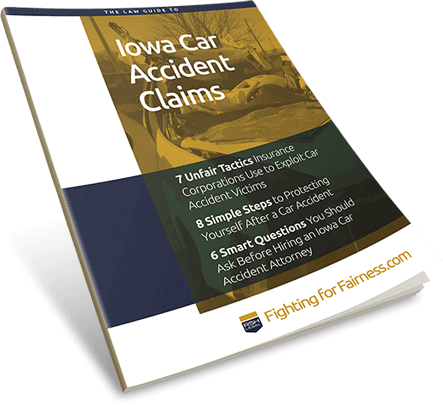There are a few things to consider when thinking about settling your personal injury claim in Iowa.
After You Settle Your Personal Injury Claim, Your Case is Likely Over
The most important thing to understand about settling your claim is that once you do, you forfeit any right to sue that defendant later for additional damages. Generally, settlement paperwork contains language that says you cannot sue the defendant ever again once you have settled. You have to sign this paperwork before you receive a check for damages.
Filing a Lawsuit After Settling Your Personal Injury Claim
There are a couple of instances when you still may be able to sue after you have settled your case. Those include:
- If the settlement was made in bad faith by the other side. This is rare and means you have to prove the person you were suing was somehow fraudulent in their settlement agreement. It’s unlikely this will happen.
- If you decide to sue a second defendant. While investigating your claim, you may have discovered a second party is also at fault for your injuries. For example, if you are hit by another driver, and during the crash your seatbelt fails, you may be able to sue both the person who injured you and the company that made the seatbelt. If you settle your claim with the other driver, you can still file a lawsuit against the seatbelt company, as long as the statute of limitations has not run.
If you suspect that multiple parties may be responsible for your injuries, it’s a good idea to speak with an experienced Iowa personal injury lawyer. They can help you determine who is responsible for your injuries.
Because you only get one shot at settling your case, it’s important to make sure that you do it right. Below are a few suggestions on how to get the most out of your Iowa personal injury settlement.
3 Things You Should Do Before Settling Your Personal Injury Case
- Make sure you’re healed, or as healed as you’re going to get.
Treat your injuries consistently until a doctor or other medical professional says you are healed, or as healed as you are going to get. This is called reaching “maximum medical improvement,” or MMI. For some people, this can mean they are completely healed. For others, this means adjusting to a “new normal,” where pain or limitations may become part of your daily life. - Consider if or how your injuries still affect your day-to-day life.
You may have reached MMI, but still deal with limitations from your injuries. It may affect your relationships with family and friends, or how you live your life. You may have to find a job that pays less, but accommodates your injuries. You may even have pain that you deal with on a daily basis. These damages can be considered part of your personal injury settlement. Don’t settle your case without at least considering if you have a right to these damages, as you will not be able to sue after you settle. - Speak with an Iowa personal injury attorney to make sure your settlement is complete.
As covered before, it’s unlikely you will be able to get any more compensation for your injuries once you have settled your case. An experienced Iowa personal injury lawyer can help you determine whether the settlement offered is fair.
If you have questions about settling your Iowa personal injury case, call RSH Legal today at 1-319-774-1783 and speak with one of our attorneys.




